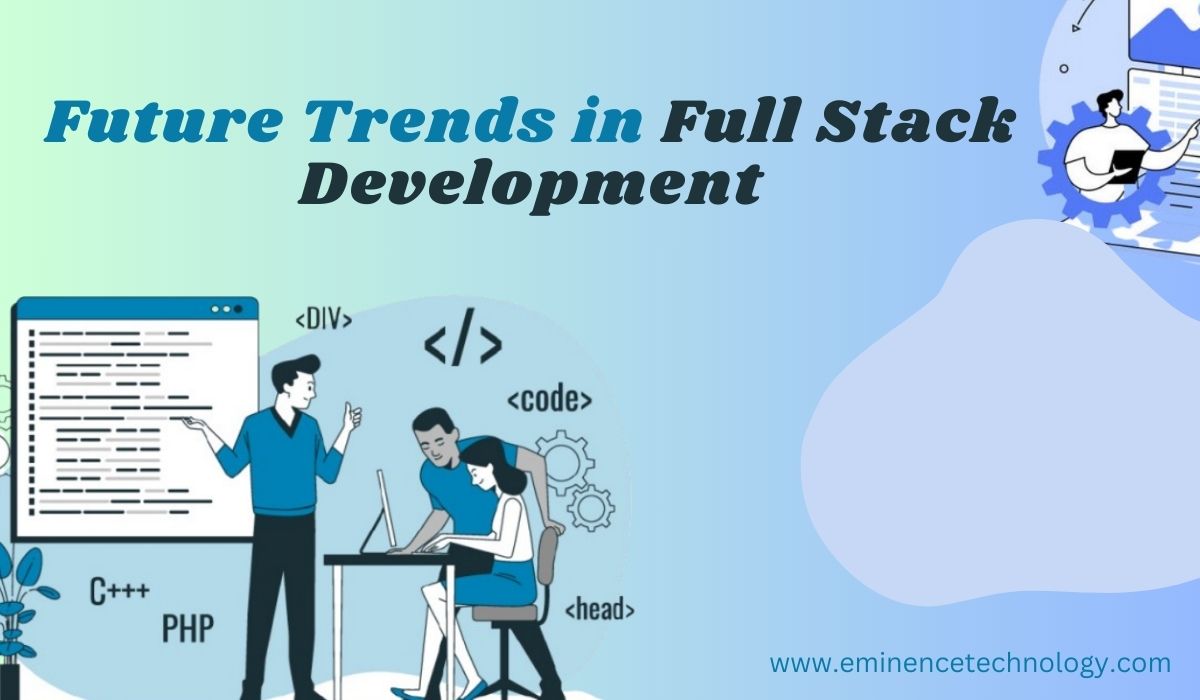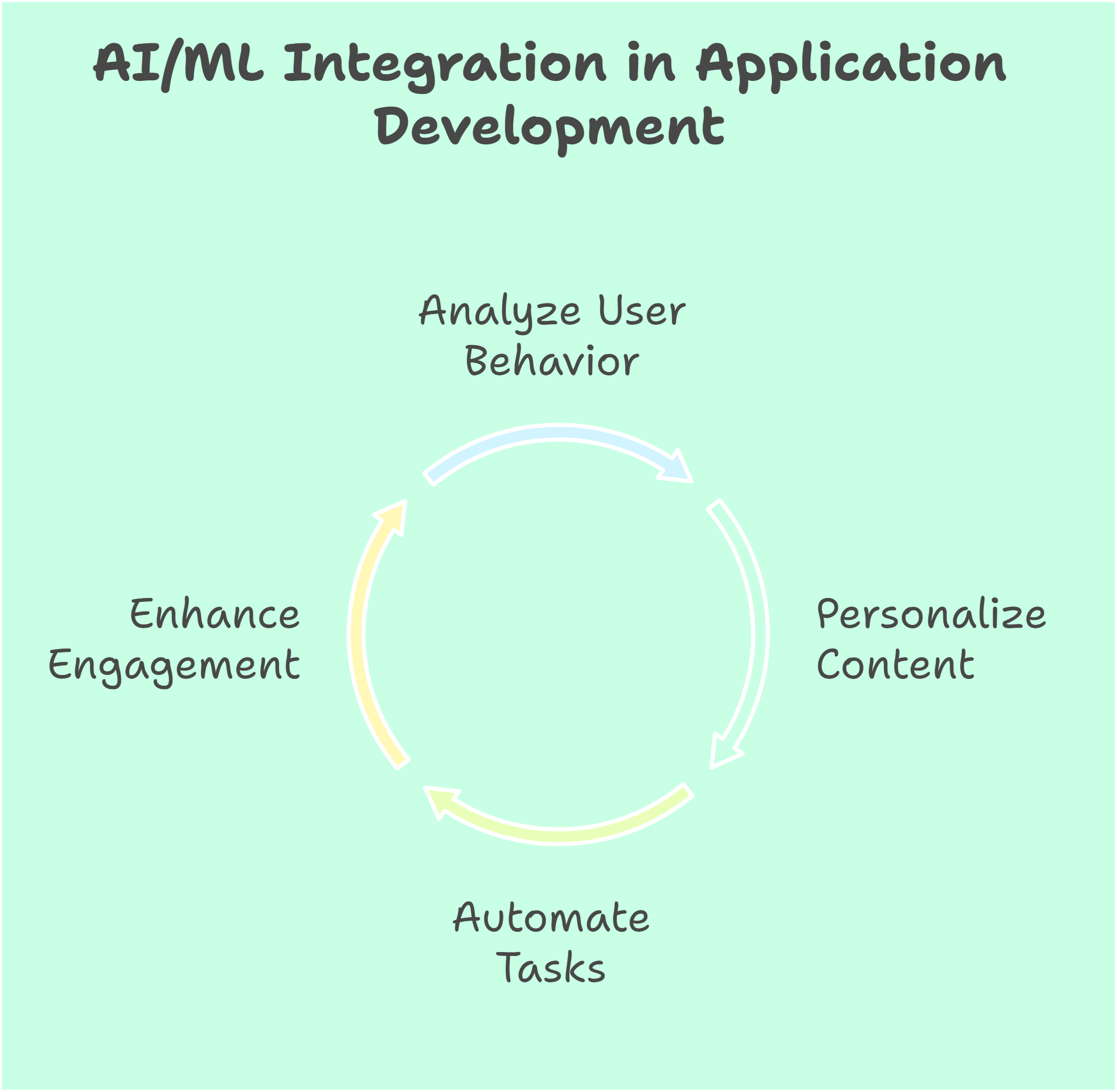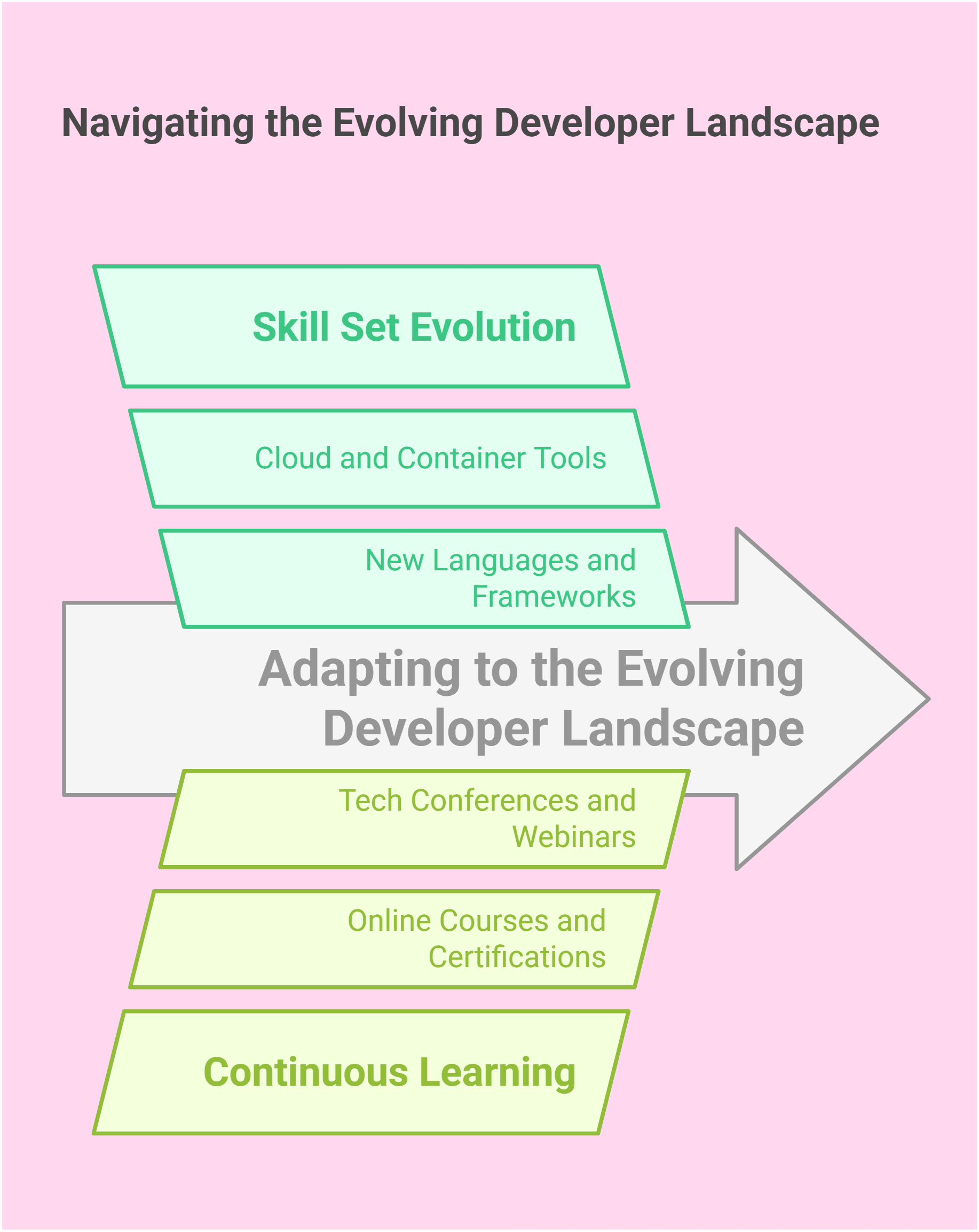Future Trends in Full Stack Developmen
The digital world is changing dramatically, and the same is the case with full stack development. As businesses continue to evolve with technology, the full stack developers are adopting cutting-edge methodologies in order to smooth out the process, enhance performance, and upgrade user experience while developing applications.

This article discovers the future of full stack development trends, talking about the evolving technologies, methodologies, and best practices that would change the method of how software developers create and maintain digital products.
The Evolving Role of Full Stack Developers
Full stack developers occupy a special niche at the crossing point between front-end and back-end development. Their capacity to work along the entire technology stack makes them of immense value for organizations aiming at creating seamless, scalable, and robust applications. However, the industry continues to evolve with changes in expectations and skill sets that these professionals have to master.
By the near future, the scope of full stack developers will encompass understanding the following additional topics, and it goes further than mere influence on technicality; trends affecting the overall style of team collaboration and how project delivery works within an increasingly agile environment.
Key Trends Shaping the Future of Full Stack Development
1. Microservices and Serverless Architectures
Perhaps one of the greatest changes in the development of modern applications is moving from monolithic architectures to microservices and serverless frameworks, which means the ability to divide applications into a set of small, independent services that can be developed, deployed, and scaled independently.
- Microservices:
Microservices enable developers to build applications as a suite of loosely coupled services. This architecture promotes flexibility, easier maintenance, and the ability to scale individual components without affecting the entire system. - Serverless Computing:
Serverless architectures remove the burden of managing servers from the developer. Instead, cloud providers handle the infrastructure, allowing developers to focus solely on writing code. This trend leads to reduced operational costs and improved scalability, as resources are allocated dynamically based on demand.
2. Containerization and Orchestration
Containerization technologies, headed by Docker, changed how people deploy applications. Containers are essentially a packaging technology that bundles an application with all its dependencies into one standalone portable unit that can run consistently in any environment it gets deployed to. The following iteration of this evolution is going to be container orchestration.
- Kubernetes:
Kubernetes is the leading platform for container orchestration. It simplifies the management of complex applications by automating tasks such as load balancing, scaling, and self-healing. As Kubernetes continues to mature, it will become an indispensable tool for full stack developers working on cloud-native applications.
3. The Rise of DevOps and Continuous Integration/Continuous Deployment (CI/CD)
DevOps has already revolutionized the landscape for development and further enhances the bonding between the developers and the operational teams. Moving forward, greater integration of principles will be evident, where pipelines for CI/CD become normal in full-stack development.
- Automated Testing and Deployment:
Automation is key to ensuring that applications are consistently delivered with high quality. CI/CD pipelines enable developers to automatically test, build, and deploy applications, reducing manual intervention and minimizing the risk of errors. - Infrastructure as Code (IaC):
With tools like Terraform and AWS CloudFormation, infrastructure management is being automated, enabling developers to define their infrastructure in code. This practice ensures consistency and accelerates the deployment process.
4. Artificial Intelligence and Machine Learning Integration
AI/ML is integrating and changing how applications are designed and how they work. Today, full stack developers are also expected to develop AI/ML features in applications that will help deliver personalized user experiences, predictive analytics, and intelligent automation.

- Personalization and Recommendation Engines:
AI-driven algorithms can analyze user behavior and preferences to deliver personalized content, product recommendations, and targeted advertising, thereby enhancing user engagement and satisfaction. - Automation of Routine Tasks:
ML models can automate repetitive tasks such as data analysis, error detection, and system monitoring, freeing up developers to focus on more strategic initiatives.
5. Enhanced Security Measures
As cyber threats become more sophisticated, the demand for robust security measures in full stack development continues to rise. Future trends will include tighter integration of security protocols throughout the development lifecycle, known as DevSecOps.
- Built-In Security:
Security is being embedded into every layer of application development. From secure coding practices to automated vulnerability scanning and real-time threat detection, full stack developers must be proactive in mitigating risks. - Compliance and Data Privacy:
With evolving data protection regulations such as GDPR and CCPA, ensuring compliance is more critical than ever. Developers need to implement secure data handling, encryption, and privacy measures to protect sensitive information.
6. Progressive Web Apps (PWAs) and Cross-Platform Development
The boundaries between web and mobile applications are blurring. Progressive Web Apps (PWAs) offer the best of both worlds, combining the reach of the web with the functionality of native apps. This trend is set to gain momentum as more businesses look to deliver seamless, engaging user experiences across multiple platforms.
- Responsive and Adaptive Design:
Full stack developers must focus on creating applications that work flawlessly on any device, leveraging modern frameworks and responsive design principles. - Single Codebase for Multiple Platforms:
Cross-platform development tools like React Native and Flutter allow developers to write a single codebase that runs on both iOS and Android, significantly reducing development time and costs.
7. Blockchain Integration
Blockchain technology is not just about cryptocurrencies; it has far-reaching implications for various industries, including finance, supply chain, and healthcare. Full stack developers are beginning to explore blockchain integration to enhance security, transparency, and trust in digital transactions.
- Decentralized Applications (DApps):
Blockchain can be used to develop decentralized applications that offer greater security and resilience against data tampering. - Smart Contracts:
Smart contracts automate and enforce contractual agreements without the need for intermediaries, reducing costs and enhancing efficiency.
Impact on the Developer Landscape

Changing Skill Sets
As full stack development evolves, so does the required skill set. Developers must continually update their knowledge to stay current with emerging trends. This includes:
- Mastering new programming languages and frameworks.
- Gaining proficiency in cloud computing, containerization, and orchestration tools.
- Learning about AI/ML integration and cybersecurity best practices.
- Adapting to agile methodologies and DevOps practices.
Increased Demand for Continuous Learning
The pace of technological change means that full stack developers must adopt a mindset of lifelong learning. Online courses, certifications, webinars, and tech conferences are essential for keeping skills sharp and staying ahead of industry trends.For those looking to further their career, our comprehensive guide, How to Become a Full Stack Developer: A Complete Guide, offers valuable insights and practical advice on mastering the necessary skills.
Business Implications of Future Trends
Driving Innovation
For businesses, embracing future trends in full stack development is not just about staying current—it’s about driving innovation. Companies that leverage the latest technologies can build applications that are more efficient, secure, and user-friendly, leading to a competitive edge in the marketplace.
Enhancing Customer Experience
By integrating advanced features like AI, blockchain, and responsive design, companies can deliver personalized, engaging, and reliable digital experiences. This focus on customer experience can lead to higher satisfaction, increased loyalty, and ultimately, better business outcomes.
Optimizing Operations
The adoption of DevOps practices, CI/CD pipelines, and automation tools not only accelerates development but also reduces operational costs. By streamlining processes, businesses can respond more quickly to market changes and customer needs.At the strategic level, companies may consider engaging with a trusted partner to help navigate these trends. For example, many organizations turn to a Best Full Stack Development Company for expert guidance on implementing cutting-edge solutions that drive digital transformation.
Future Trends in Full Stack Development: A Roadmap for Success
Embracing Emerging Technologies
The future of full stack development is dynamic and full of opportunities. By staying abreast of emerging technologies and trends, developers and businesses alike can ensure they remain at the forefront of innovation. Whether it’s through the adoption of microservices, the integration of AI/ML, or the exploration of blockchain, the potential for growth and improvement is enormous.
The Role of Collaboration
Collaboration between development teams, business stakeholders, and technology partners is critical in this evolving landscape. As companies strive to Hire Full-Stack Developers with the latest skill sets, they must also foster environments that encourage continuous learning, innovation, and agile practices.
Partnering for Success
For businesses seeking to implement these trends and drive digital transformation, partnering with a reputable Full Stack Development Services Company can make all the difference. Such partners bring expertise, resources, and a deep understanding of emerging technologies to help organizations build scalable, high-performing applications.
Conclusion
The future for full stack developers is going to be exciting, innovative, and transformative. And as technologies progress, full stack developers will be required to shift their skill set and adopt the new tools and methodologies. Starting from microservices and containerization to AI integration and blockchain, the trends driving the industry forward are going to redefine how digital solutions are created and maintained.
For businesses, it is an exciting opportunity to innovate, improve the customer experience, and optimize their operations. From hiring the Best Full Stack Development Company for digital strategy execution or partnering with full-stack developers possessing the latest skills, change and continuous learning hold the promise for the future.
Think about the changing world of full stack development as something of a challenge and an opportunity while planning your next digital initiative. You'll be able to create applications that are resilient, scalable, and user-friendly through being informed of future trends and cutting-edge technologies.
At the end of the day, success in this fast-paced environment just boils down to smarter strategic decisions and partnerships with the right experts who know the intricacies of modern development. One of such partners is Eminence Technology, which has a proven track record in delivering innovative, secure, and scalable full stack solutions dedicated to helping businesses navigate the complexities of digital transformation. Our team of experts is driven to succeed with continuous innovation, deep industry knowledge, and a customer-centric approach.
Embrace the future of full stack development with confidence, and let Eminence Technology guide your journey toward digital excellence.
